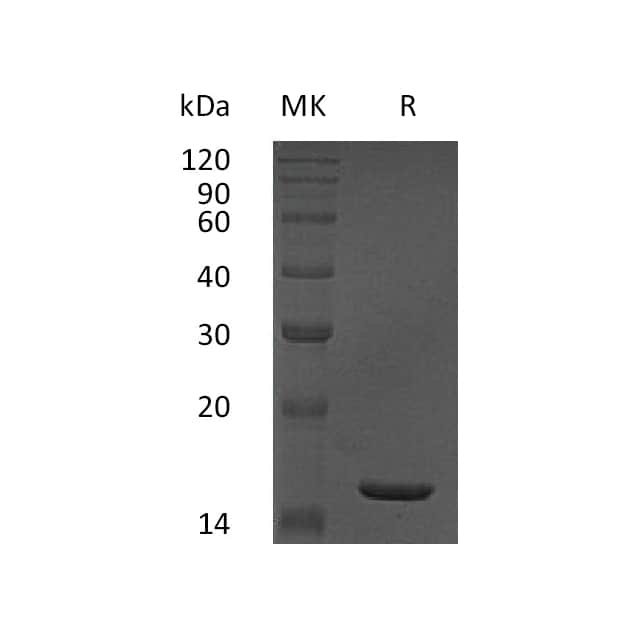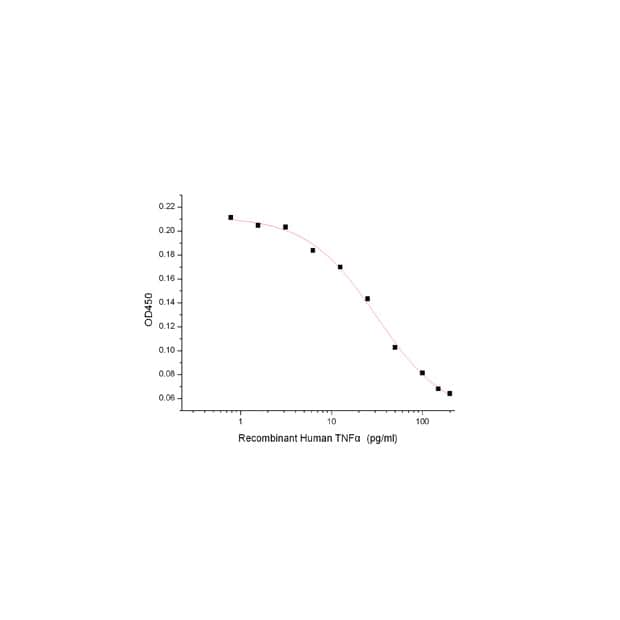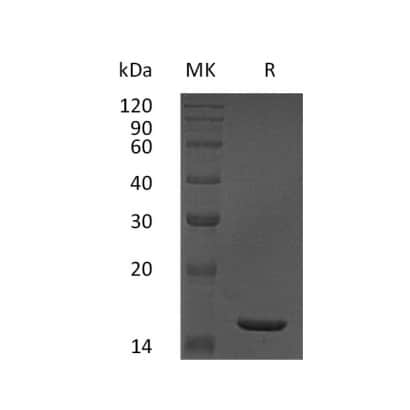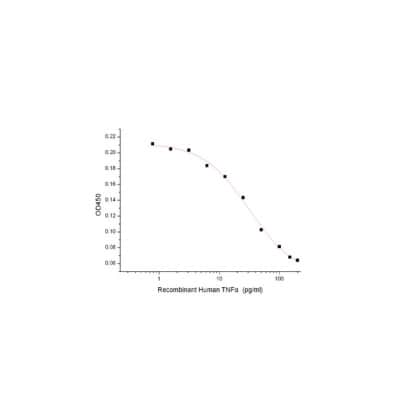#C008, Recombinant Human TNF alpha
Recombinant Human Tumor Necrosis Factor Alpha is produced by our E.coli expression system and the target gene encoding Val77-Leu233 is expressed.
- Accession: P01375
- Known As: Tumor Necrosis Factor; Cachectin; TNF-Alpha; Tumor Necrosis Factor Ligand Superfamily Member 2; TNF-a; TNF; TNFA; TNFSF2
- Mol Mass: 17.5 KDa
- APMol Mass: 16 KDa, reducing conditions
- Formulation Description: Lyophilized from a 0.2 μm filtered solution of 20mM PB, 150mM NaCl, pH 7.0.
- Endotoxin: Less than 0.1 ng/µg (1 EU/µg) as determined by LAL test.
- Purity:
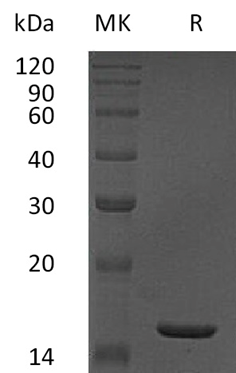
-
Bioactivity
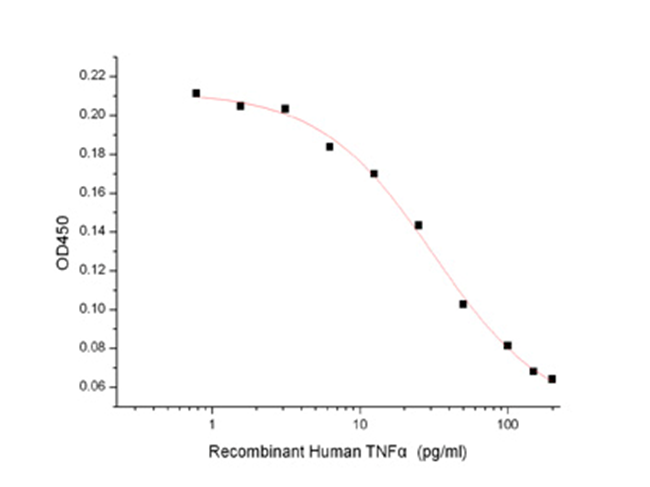
Measured in a cytotoxicity assay using L‑929 mouse fibroblast cells in the presence of the metabolic inhibitor actinomycin D. The ED50 for this effect is 10-50 pg/ml.
- Reconstitution
It is not recommended to reconstitute to a concentration less than 100μg/ml.
Dissolve the lyophilized protein in distilled water.
Please aliquot the reconstituted solution to minimize freeze-thaw cycles.
- Storage
Reconstituted protein solution can be stored at 4-7°C for 2-7 days.
Aliquots of reconstituted samples are stable at < -20°C for 3 months.
- Shipping
Upon receipt, store it immediately at the temperature listed below.
- Background
TNFα is a homotrimer with a subunit molecular mass of 17 kD cytokine that binds to TNFRSF1A/TNFR1 and TNFRSF1B/TNFBR. It is mainly secreted by macrophages and can induce cell death of certain tumor cell lines. It plays a major role in growth regulation, differentiation, inflammation, viral replication, tumorigenesis, autoimmune diseases and in viral, bacterial, fungal, and parasitic infections. Besides inducing hemorrhagic necrosis of tumors, TNF was found to be involved in tumorigenesis, tumor metastasis, viral replication, septic shock, fever, inflammation, and autoimmune diseases including Crohn’s disease, and rheumatoid arthritis as well as graft-versus-host disease.

